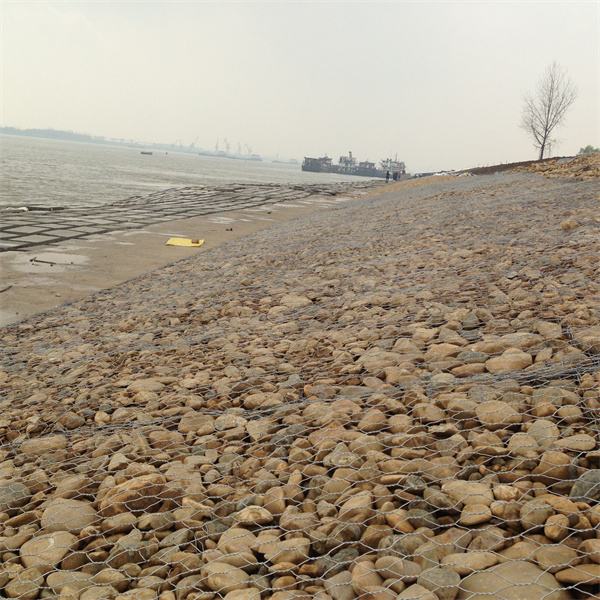Nën . 22, 2024 20:45 Back to list
gabion wire gauge
Understanding Gabion Wire Gauge A Comprehensive Guide
Gabions have emerged as one of the most versatile and effective solutions for various construction and landscaping applications. A gabion is essentially a cage or container filled with rocks, concrete, or other materials, often used for erosion control, retaining walls, and other structural purposes. One of the critical elements of gabion construction is the wire gauge used in the baskets that hold these materials. This article delves into the importance of gabion wire gauge and how it impacts the overall performance and longevity of gabion structures.
What is Wire Gauge?
Wire gauge refers to the thickness of the wire used in fabricating the gabion baskets. The gauge can significantly affect the strength, flexibility, and durability of the gabion. Wire gauges are measured in numbers, where a higher number indicates a thinner wire, while a lower number indicates a thicker wire. Common wire gauges used for gabions typically range from 8 gauge (approximately 4 mm) to 12 gauge (approximately 2.5 mm).
Importance of Choosing the Right Wire Gauge
1. Strength and Stability The primary purpose of a gabion is to provide structural stability. The wire gauge affects the tensile strength of the gabion baskets. Thicker wires, such as 8 or 9 gauge, offer greater strength and can withstand substantial loads, making them ideal for larger applications like retaining walls or riverside protection. On the other hand, thinner wires (e.g., 12 gauge) might be adequate for smaller projects, such as decorative landscaping features.
2. Flexibility The flexibility of the wire is crucial, especially in environments prone to shifting or settling. Thicker wires tend to be less flexible, which can be both an advantage and a disadvantage. While they provide excellent stability, they may not absorb shock and movement as effectively as thinner wires. A balance must be struck, depending on the specific application and environmental conditions.
3. Corrosion Resistance The wire gauge is also linked to the corrosion resistance of the gabion. Thicker wires are often coated with additional protective material, such as galvanized steel or PVC, to withstand harsh weather and environmental conditions. This treatment is particularly vital in coastal areas where salt spray can accelerate corrosion. The choice of gauge should be aligned with the expected exposure to moisture and other corrosive elements.
gabion wire gauge

4. Installation and Handling Thicker wire can be more challenging to work with and may require specialized tools for cutting and installation. Conversely, thinner wire is more manageable, allowing for easier handling and quicker assembly. However, the ease of installation should not compromise the structural integrity of the gabion.
Selecting the Right Wire Gauge for Your Project
Choosing the appropriate wire gauge for your gabion project involves evaluating several factors
- Application Type Consider the specific application of the gabion, such as erosion control, landscape architecture, or structural engineering. Each application has different load requirements and exposure risks.
- Environmental Conditions Assess the site's environmental conditions, including soil type, moisture levels, and exposure to wind or water. These factors can significantly influence which wire gauge is most suitable.
- Budget Considerations While selecting a thicker gauge may appear costlier upfront, it could provide long-term savings by reducing maintenance and replacement needs.
Conclusion
Gabion wire gauge is a fundamental aspect that influences the effectiveness and longevity of gabion structures. Selecting the right gauge involves understanding the project's requirements, environmental factors, and installation considerations. By making informed choices regarding wire gauge, you can ensure that your gabion installations provide the durability, flexibility, and stability needed for a variety of applications. Whether you are building a simple decorative feature or a robust retaining wall, the right gabion wire gauge will play a crucial role in your success.
-
The Role of Galvanized Gabion Mesh in Riverbank Protection
NewsJun.26,2025
-
The Role of Gabion Basket Raised Bed in Sustainable Gardening
NewsJun.26,2025
-
Quality Assurance of Wire Mesh Gabion Baskets
NewsJun.26,2025
-
Installation Guide for Welded Gabion Box
NewsJun.26,2025
-
How to Choose the Right Gabion Box
NewsJun.26,2025
-
Different Types of Gabion Wire Mesh
NewsJun.26,2025
-
Why PVC Coated Gabion Mattress Is the Best Solution for Long-Term Erosion Control
NewsMay.23,2025






